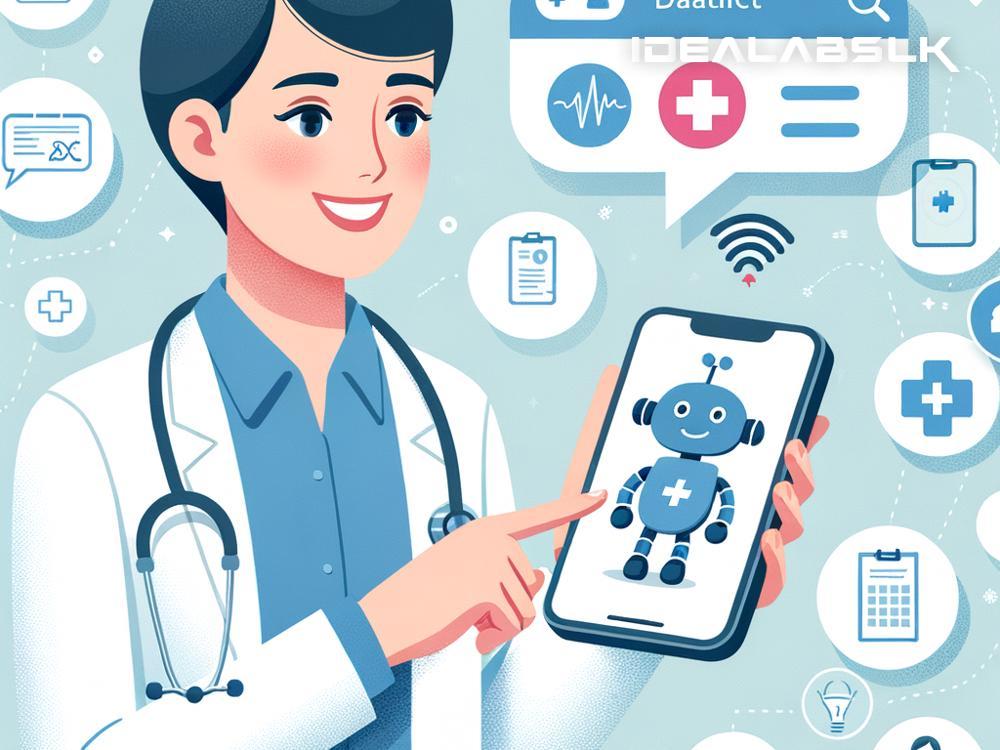Revolutionizing Healthcare Customer Service: The Power of AI-Powered Chatbots
In today's fast-paced world, where time is often seen as more valuable than money, the healthcare industry is undergoing a significant transformation to keep up with the expectations of its clients. One of the most groundbreaking changes we're witnessing is the integration of Artificial Intelligence (AI) into healthcare, especially through the use of AI-powered chatbots. These innovative tools are not just changing the game; they're massively improving healthcare customer service and dramatically reducing wait times. But how, you might wonder? Let's dive into the world of AI chatbots and explore their impact on healthcare.
Instant Responses, Anytime
Imagine having a health concern in the middle of the night and needing immediate answers. In the traditional healthcare setup, your options would be limited, possibly waiting for the clinic to open the next day or heading to an emergency room. Enter AI chatbots. These virtual assistants are available 24/7, ready to provide instant responses to your queries. Whether it's a question about medication side effects or the need for a clinic appointment, AI chatbots can provide immediate assistance, making healthcare access faster and more efficient.
Reducing Wait Times
One of the most significant benefits of AI-powered chatbots in healthcare is the dramatic reduction in wait times. Before chatbots, patients often had to endure long hold times on calls or wait for days to get email responses. Now, chatbots can handle multiple inquiries simultaneously, instantly providing answers to common questions. This efficiency not only improves the customer experience but also frees up human resources to focus on more complex issues, ensuring patients who need more detailed assistance receive it more swiftly.
Personalized Healthcare Information
AI chatbots are not just about speed; they're also about personalization. These smart systems can analyze your past interactions and health records (with proper permissions, of course) to provide tailored advice and information. This personalized approach means that the information you receive takes into account your health history, leading to better-informed health decisions and a more customized healthcare experience.
Scheduling Made Easy
Gone are the days of back-and-forth phone calls just to set up an appointment. AI-powered chatbots can manage scheduling tasks with ease, allowing patients to book, reschedule, or cancel appointments without human intervention. This streamlined process reduces administrative burdens on healthcare facilities and enhances patient satisfaction by making healthcare more accessible.
Enhancing Post-Appointment Care
The role of AI chatbots extends beyond immediate responses and appointment scheduling. These intelligent assistants also play a crucial part in post-appointment care, providing follow-up instructions, reminding patients about medication schedules, or answering any residual questions after a doctor's visit. This continuous line of communication ensures that patients feel supported throughout their healthcare journey.
Reducing Operational Costs
While the benefits to patients are clear, AI chatbots also offer significant advantages to healthcare providers by reducing operational costs. Automating routine tasks and answering frequent inquiries reduces the need for a large customer service team, translating into savings that can be redirected towards improving other areas of patient care.
Bridging the Information Gap
In a world overloaded with information, AI chatbots help filter out the noise by providing accurate, verified medical information. This capability is crucial, especially when misinformation can spread rapidly online. By ensuring that patients receive correct and relevant health advice, AI chatbots play an essential role in public health education and awareness.
Challenges and the Road Ahead
Despite the evident benefits, the integration of AI chatbots in healthcare is not without challenges. Concerns about data privacy, the need for continuous improvement of AI models to understand complex human interactions, and ensuring the inclusivity of non-tech-savvy individuals are among the issues that need addressing. However, with ongoing advancements in AI technology and a commitment to ethical standards, the potential to overcome these hurdles is within reach.
Conclusion
AI-powered chatbots are revolutionizing healthcare customer service by providing instant, personalized, and accessible care, significantly reducing wait times, and enhancing the overall patient experience. As this technology continues to evolve, the future of healthcare looks promising, with AI chatbots playing a pivotal role in making healthcare more efficient, accessible, and patient-centered. The journey of AI in healthcare is just beginning, and its potential to transform the industry is boundless.

